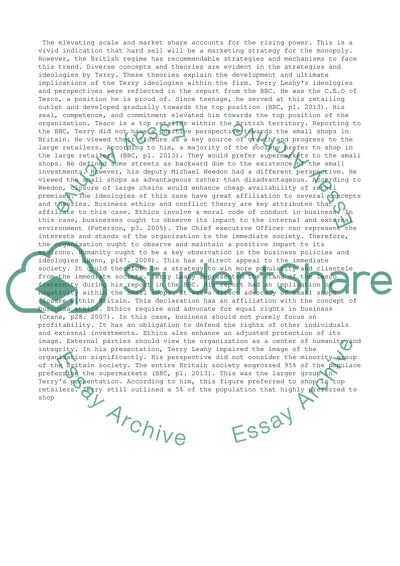Cite this document
(The Strategies and Ideologies of Tesco Essay Example | Topics and Well Written Essays - 2000 words, n.d.)
The Strategies and Ideologies of Tesco Essay Example | Topics and Well Written Essays - 2000 words. https://studentshare.org/business/1469882-the-strategies-and-ideologies-of-tesco
The Strategies and Ideologies of Tesco Essay Example | Topics and Well Written Essays - 2000 words. https://studentshare.org/business/1469882-the-strategies-and-ideologies-of-tesco
(The Strategies and Ideologies of Tesco Essay Example | Topics and Well Written Essays - 2000 Words)
The Strategies and Ideologies of Tesco Essay Example | Topics and Well Written Essays - 2000 Words. https://studentshare.org/business/1469882-the-strategies-and-ideologies-of-tesco.
The Strategies and Ideologies of Tesco Essay Example | Topics and Well Written Essays - 2000 Words. https://studentshare.org/business/1469882-the-strategies-and-ideologies-of-tesco.
“The Strategies and Ideologies of Tesco Essay Example | Topics and Well Written Essays - 2000 Words”. https://studentshare.org/business/1469882-the-strategies-and-ideologies-of-tesco.


